This post originally appeared on The Volokh Conspiracy, a Washington Post blog.
What’s wrong with American politics? Mainly, to listen to people such as Sen. Bernie Sanders and President Trump and their supporters, the domination of corrupt and self-serving elites who have sidelined the authentic voices and interests of The American People.
In a new paper from the Brookings Institution, Benjamin Wittes and I argue that this standard populist diagnosis is backward. We make a case that is unpopular at the moment but is deeply rooted in America’s practical politics and constitutional tradition. Efforts to enhance direct popular participation have backfired — and to a large extent always will, because of deep flaws in the participation-minded reform model. Reformers and their backers in foundations and academia need to reboot their thinking, with an emphasis on institutionalism, not populism.
In a previous post, I mentioned that well-intended efforts to democratize politics by disempowering political gatekeepers and intermediaries have brought disruption and danger to political systems not only in the United States but also abroad. In “More professionalism, less populism: How voting makes us stupid, and what to do about it,” Ben and I grapple with a proposition for which there is mounting evidence: Although increasing political participation is the chicken soup of political reforms (good for whatever ails you), it won’t work, for several reasons.
First, voters are not capable of playing the role that participation-minded reformers would thrust upon them. In the work of Ilya Somin, Christopher Achen and Larry Bartels, Bryan Caplan and others, the literature on flaws in voter decision-making has developed substantially over the past decade or so, to the point where the proposition that populist reforms will produce more representative politics, better governance or a happier public is borderline indefensible.
This is true not because voters are stupid, but because they are smart. Given their vote’s infinitesimal effect, they are rational to limit their investment in policy knowledge and instead to treat their vote as an expression of protest, prejudice or tribal solidarity. Moreover, cognitive psychology finds all kinds of ways in which humans, regardless of their IQ, are systematically biased in their perceptions and priorities. Those biases, expressed at the polls, distort both politics and policy, and neither increasing nor decreasing political participation will obviate them.
Second, even if voters were rational, unbiased and well-informed, they still would be incapable handling the kinds of complex decisions that government must routinely make — even if they wanted to, which they assuredly do not.
Third, the populist, elite-bashing tenor of our times denigrates the great value that professionals and experts offer. The Supreme Court and the Federal Reserve are often-cited examples of how expert decision-making can not only work effectively but enjoy relatively high popular esteem. Ben and I develop another example: intelligence oversight. Although the system for overseeing the intelligence community spans all three branches of government, it is inherently both technocratic and secretive. (It deals, after all, with secrets.) Yet it has proven remarkably effective, popular and representative — more so, we believe, than a more directly democratic system could be.
Intermediation by experts and professionals is no substitute for elections. But neither are elections a substitute for expert and professional intermediation. The Founding Fathers were right to insist on a hybrid system that applies both kinds of filters. They were right to argue (as Madison does in Federalist No. 10) that an intermediated system is more representative than direct democracy, not less so. Unfortunately, decades of progressive and populist reforms have thrown the system out of kilter by delegitimizing and often demonizing intermediaries.
Empowering pols, pros, hacks and machines is a tough case to make right now, and no wonder: It has been a generation, maybe two, since the public has heard a robust, unapologetic case for political intermediation. Today, when so many people sense that politics has gone off the rails, is the right time to begin reinvesting in that case. “In asking the public and the reform community to reconsider the cult of participation and rediscover the value of intermediation,” Ben and I write, “we seek only to recall what Madison taught: Intermediation strengthens democracy, and sometimes democratization weakens it.” Check out the paper here.
The Brookings Institution is committed to quality, independence, and impact.
We are supported by a diverse array of funders. In line with our values and policies, each Brookings publication represents the sole views of its author(s).

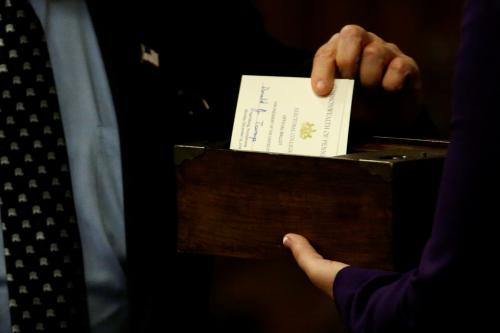

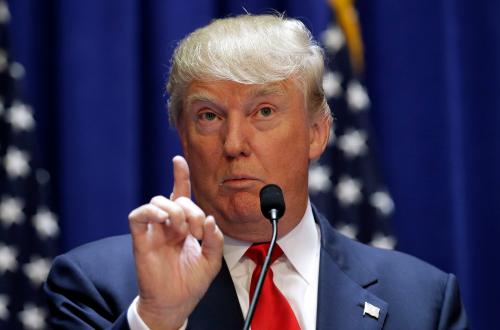
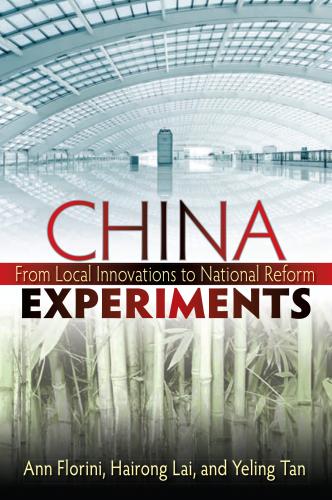
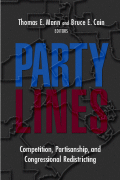
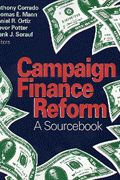




Commentary
Why voting makes us stupid, and what to do about it
June 1, 2017